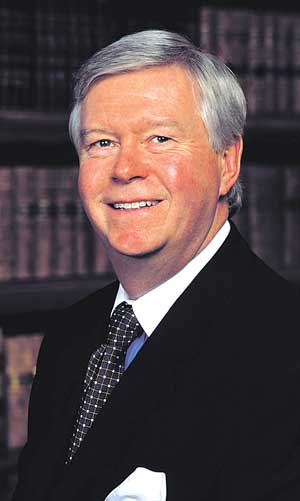The Canadian Judicial Council is openly criticizing Prime Minster Stephen Harper’s changes to federal judicial advisory committees, raising questions about the independence of the committees from the government and whether the most qualified candidates will continue to be appointed to the bench.

Last November, the government announced changes to the appointment process for federal judicial advisory committees, which are responsible for assessing the qualifications of lawyers who apply for federal judicial appointments and for recommending candidates to the minister.
The changes increase the number of members on the committee from seven to eight, including a judicial representative, one from the provincial attorney general, one from the provincial law society, and one from the Canadian Bar Association.
The number of ministerial appointments is also boosted from three to four, including a law enforcement officer.
Under the new system, the judicial representative is no longer allowed to vote, except in the event of a tie.
The distinction between “recommended” and “highly recommended” for potential candidates has also been removed.
The move was denounced by the CJC and the CBA in November not only because of the changes themselves, but also because of a lack of consultation with the bench and bar.
In a paper released last week aimed at providing context for the judicial selection process, the CJC notes that as the four members appointed by the minister constitute a majority, “The advisory committees may neither be, nor seen to be, fully independent of the government. This puts in peril the concept of an independent body that advises the government on who is best qualified to be a judge.”
Parker MacCarthy, president of the CBA, told Law Times the CBA remains concerned about the changes in terms of the composition and balance of the committees, as it leaves them open to the perception that they are open to partisan influence.
The CJC also says that the elimination of the distinction between “recommended” and “highly recommended” for assessing candidates for the bench raises questions about whether the most qualified individuals will be identified for appointment. The council adds that there are also many factors to be considered, such as personal qualities, competencies, and proficiency in various areas of the law.
With respect to the changes to the committees, Edward Ratushny, a professor at the University of Ottawa law school, says that the appointment is really the decision of the governor in council, so the fact of whether the person is shown to be qualified or well qualified does not hinder them in appointing someone, as long as they reach this level.
“I think there should be a wide range of possible candidates for them to select from,” he says.
“If these changes mean that they’re going to slip people onto the qualified category who otherwise would not have been qualified, I think that would be very unfortunate.
“But I’m not sure that these changes would necessarily do that.”
While the CJC recognizes that the government has the authority and mandate to appoint judges, it adds, “The fundamental importance of appointing only the most meritorious candidates, irrespective of political or ideological conviction, should guide all three branches of government in working together to serve the interests of all Canadians.
“Judicial independence is not the private right of judges but the foundation of judicial impartiality and a constitutional right of all Canadians,” says the CJC.
Former Liberal justice minister Irwin Cotler also recently expressed concern over the politicization of the judicial appointment process. Speaking at the 2007 Morris A. Gross Memorial Lecture at the University of Toronto law school, Cotler said, “If we want to protect the independence of the judiciary, if we want to ensure the courts at the pillar of our constitutional system with the independence and integrity that that requires, then the appointment process has to itself underpin the merits system.”
Commenting on judicial appointments in the House of Commons earlier this month, Harper said, “We want to make sure that we are bringing forward laws to make sure we crack down on crime and make our streets and communities safer.
“We want to make sure that our selection of judges is in correspondence with those objectives.”
Cotler said in his view, this “sets to bring about both a political and ideological politicization of the appointment process, which would lead to the politicization of the judiciary itself.”
MacCarthy says Harper’s comments concerned the CBA and were “A rather dramatic admission and I guess confirmation of our great concern that the motivation for the government’s changes was really, in fact, to permit block voting on these committees and to change the way the committees operate and, even worse, to try to select candidates not necessarily on the basis of merit but more on the basis of adherence to the views of the government.
“That, I think, undermines the impartiality and the independence of the judiciary,” he adds.
While Cotler said someone’s political affiliation should not exclude them from being a candidate for the bench, he said it shouldn’t be the basis for the appointment.
“We never knew in the past really what was the political or ideological affiliation. We made appointments on the merits and that was true with respect to both the Conservative and the Liberal governments. This injection of this politicization dynamic can only be prejudicial both to the appointments process and ultimately to the actual courts themselves,” said Cotler.

 Last November, the government announced changes to the appointment process for federal judicial advisory committees, which are responsible for assessing the qualifications of lawyers who apply for federal judicial appointments and for recommending candidates to the minister.
Last November, the government announced changes to the appointment process for federal judicial advisory committees, which are responsible for assessing the qualifications of lawyers who apply for federal judicial appointments and for recommending candidates to the minister.